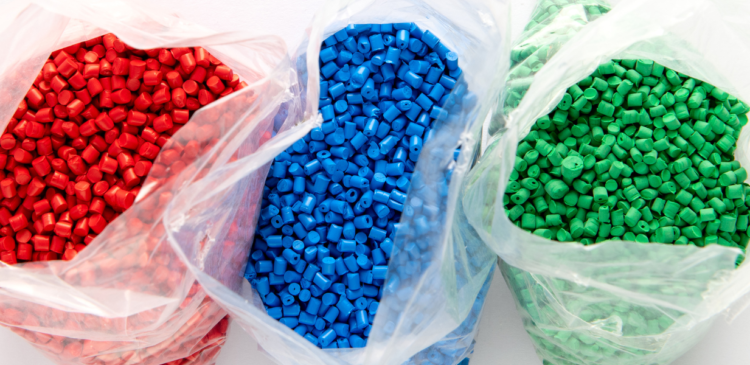Recycled Plastics vs Virgin Plastics

Recycled plastics are derived from post-consumer or post-industrial plastic waste. This waste is collected, sorted, cleaned, and processed to create new plastic products. In contrast, virgin plastics are produced from raw petrochemical feedstock, such as crude oil or natural gas, which undergo refining and chemical processes to yield plastic resins.
Opting for recycled plastics not only reduces the demand for new plastic production but also conserves natural resources like oil, saves energy, and mitigates greenhouse gas emissions. Additionally, it helps divert plastic waste from landfills and oceans. Conversely, the production of virgin plastics necessitates substantial energy consumption and exhausts natural resources. It also contributes to greenhouse gas emissions and pollution throughout extraction, refining, and manufacturing processes.
The quality of recycled plastics may vary based on factors such as plastic type, source, and recycling techniques. Occasionally, recycled plastics may exhibit slight differences in characteristics compared to virgin plastics. Virgin plastics are generally more consistently high-quality and deliver superior performance when compared to recycled plastics. They are typically preferred for applications that prioritize specific properties.
Recycled plastics can sometimes be more cost-effective to produce than virgin plastics since they do not require the extraction and refining of raw materials. Conversely, the production of virgin plastics, particularly during periods of high petrochemical feedstock prices, can be more expensive. The cost of virgin plastics can fluctuate due to market dynamics.
Recycled plastics contribute to a circular economy by prolonging material life and reducing waste. They also encourage the utilization of existing resources, rather than relying solely on new materials. However, the production of virgin plastics relies on finite fossil fuel resources, which can deplete resources and cause energy scarcity.

In summary, recycled plastics deliver environmental benefits by reducing waste, conserving resources, and lowering emissions. However, their quality and performance may vary. On the other hand, virgin plastics offer consistent quality but come with increased environmental concerns due to production processes and resource consumption. The choice between recycled and virgin plastics often depends on factors such as product requirements, cost considerations, and sustainability goals.
Pricing
The cost of recycled resin compared to virgin resin can fluctuate based on various factors, including resin type, market demand, location, and environmental regulations.
Recycled Resin: Recycled resin is generally less expensive than virgin resin because it is derived from post-consumer or post-industrial plastic waste. Recycling helps reduce the cost of raw materials and energy required for production, making it a more cost-effective option in many cases.
Virgin Resin: Virgin resin is produced using newly extracted raw materials, resulting in higher quality and consistency compared to recycled resin. However, it tends to be pricier due to the costs associated with extraction, refining, and processing of these raw materials.
It is important to note that the price differential between recycled and virgin resin can fluctuate over time due to market dynamics, government policies, and consumer preferences. In recent years, there has been a growing emphasis on sustainability and recycling, which can impact the pricing and availability of recycled resin.
